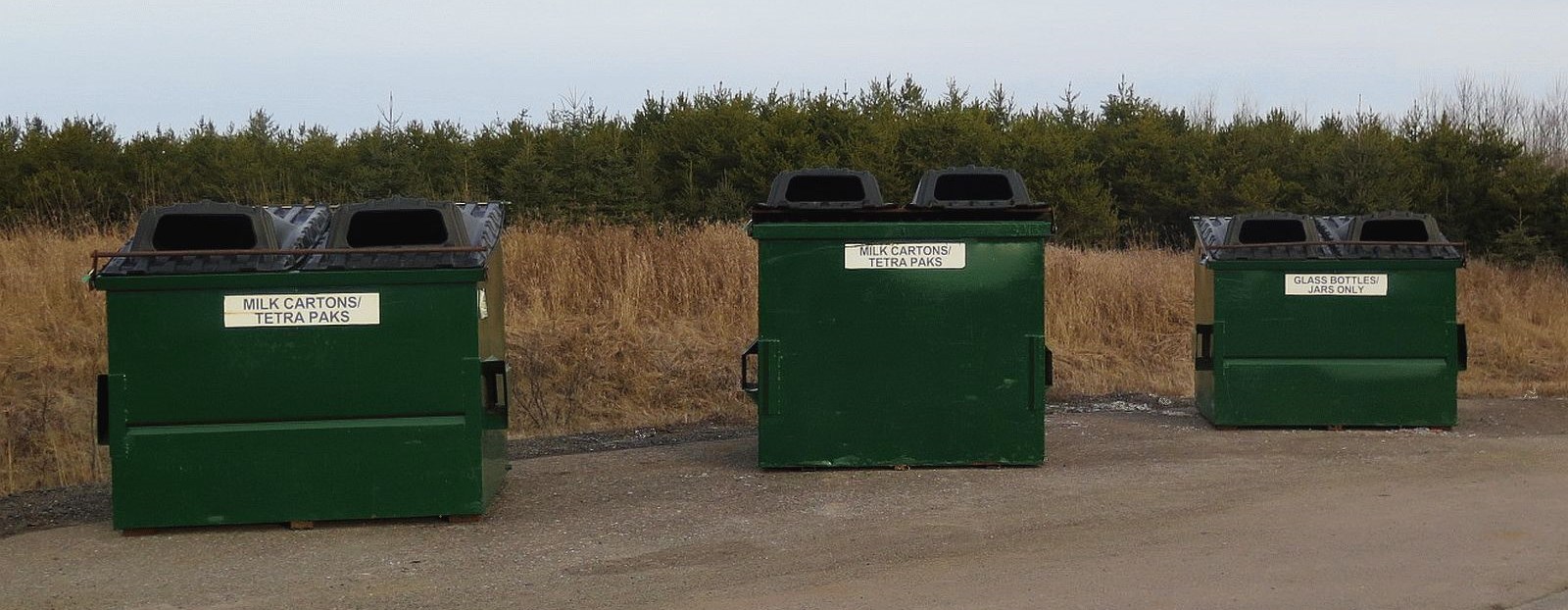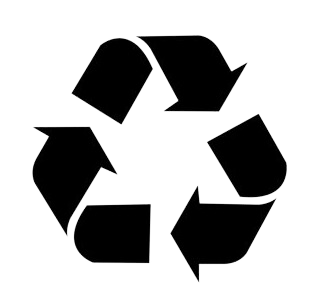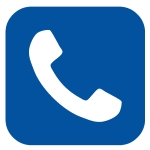Residential recycling collection
Curbside residential recycling collection is carried out by GFL Environmental Inc. under contract with Circular Materials, and takes place every two weeks, usually on the same day of the week, with some exceptions for holidays.
Your recycling collection day is indicated by the recycling symbol on your waste collection calendar.
Recycling depots
There are three recycling depots in Thunder Bay.
Mountdale Avenue at Walsh Street Recycling Depot |
|
Front Street Recycling Depot |
|
City of Thunder Bay Solid Waste & Recycling Facility Recycling Depot |
|
*Tips for using the recycling depots* |
|
Household hazardous waste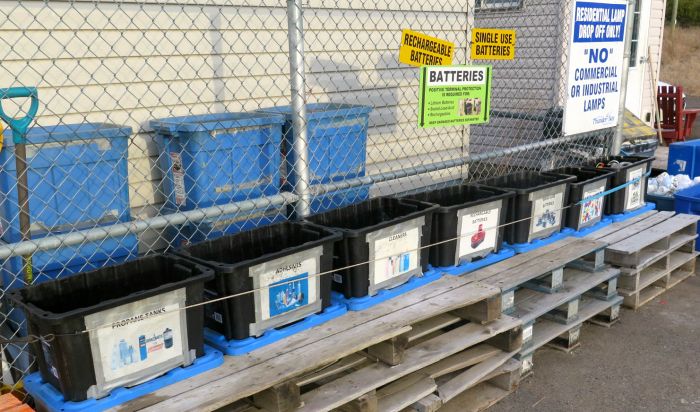
If a product is marked DANGER or POISON, it is toxic, corrosive or extremely flammable. WARNING or CAUTION indicates that the product is slightly toxic. Incorrect disposal of any of these products can endanger people, pets and the environment. You can drop off such materials at the Household Hazardous Waste Depot.
Household Hazardous Waste (HHW) Depot location & hours |
|
Location City of Thunder Bay Solid Waste & Recycling Facility (landfill site), 5405 Mapleward Rd., between Oliver Road and John Street Road. Hours Monday to Friday: 8 am - 6:30 pm Saturday: 8 am - 4:30 pm Closed Sundays and all statutory holidays |
What does the HHW Depot accept? |
|
The HHW Depot only accepts special residential waste such as:
Drop off hazardous waste in its original container, or label all products you bring to the Depot. Never mix hazardous wastes. |
Identifying hazardous waste |
|
Consumers often rely on product labels for information, but labels may not list all ingredients. You can consider a product potentially hazardous if you see these symbols or signal words: Danger, Warning, Poison, Caution, Caustic, Irritant, Volatile. Products labelled "Danger" are the most hazardous. |
Sharps and used medications |
|
Via Canada's Health Products Stewardship Association, Ontarians can return unused or expired medications and sharps, free of charge, to many pharmacies in our community. Collection locations near you |
Other recycling options
Check out the Waste Wizard tool on our Garbage and Recycling webpage for detailed information on recycling, donating or repurposing specific items.
The Resource Productivity and Recovery Authority (RPRA) offers an interactive map to help you find free-of-charge local recycling options for many materials. Visit RPRA's Where To Recycle Map.
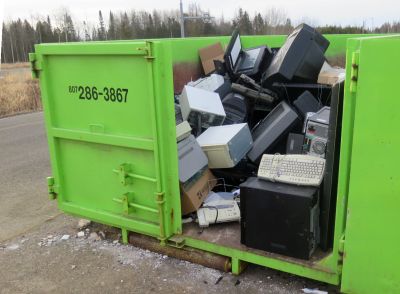 Electronic waste (e-Waste)
Electronic waste (e-Waste)
Used, broken or unwanted computer and electronic equipment doesn't belong in the landfill. Not only can it leach toxins such as lead, mercury and cadmium into the soil, but it contains valuable materials that can be recycled. Also, many electronic devices including cellphones and laptops contain lithium-ion batteries which can catch fire if the appliance is crushed in a garbage truck or in the landfill. This is one more reason to dispose of electronic devices with care.
Electronic waste must be disposed of in an environmentally responsible way.
How to recycle electronic items |
|
Drop off electronic items at the Electronic Waste Depot at the Solid Waste & Recycling Facility (landfill site). We accept:
|
What happens to electronics being recycled? |
|
Waste is collected and shipped to industries that disassemble and re-use up to 90% of the e-waste components. |
Working electronics |
|
Items still in working condition, and not obsolete, can be donated to agencies such as The Salvation Army - just call first to confirm. Check the Yellow Pages of the telephone book under Second-Hand Store or Computers - some local businesses will buy used computers in working condition. |
2024 changes to residential curbside recycling collection
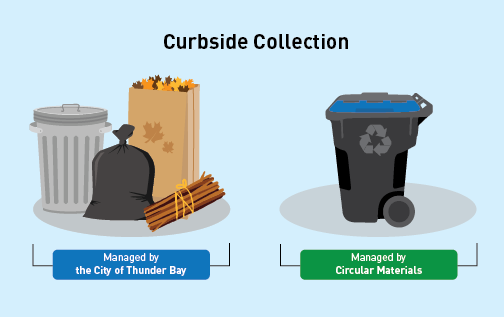 As part of Ontario-wide regulatory changes to introduce an Extended Producer Responsibility (EPR) model for recyclable materials, as of July 1, 2024 Circular Materials began managing Thunder Bay’s residential recycling program via their contractor, GFL Environmental Inc.
As part of Ontario-wide regulatory changes to introduce an Extended Producer Responsibility (EPR) model for recyclable materials, as of July 1, 2024 Circular Materials began managing Thunder Bay’s residential recycling program via their contractor, GFL Environmental Inc.
GFL now uses an automated recycling cart system for collecting residential curbside recycling.
Important points:
- GFL is responsible for delivery and maintenance of recycling carts; if you have questions about recycling cart delivery or use, call GFL at 1-844-870-4351 (local toll-free) or email thunderbayrecycling@gflenv.com
- Blue bags are no longer accepted for curbside recycling
Visit circularmaterials.ca/thunderbay for general information about these changes. To contact Circular Materials, visit Circular Materials' Contact webpage.
| What changed on July 1, 2024? |
|
| What stays the same? |
|
| About Circular Materials |
|
Circular Materials is a national, not-for-profit organization that builds efficient and effective recycling systems in which materials are collected, recycled, and returned to producers to use as recycled content in new packaging and paper. As the administrator of Ontario’s common collection system, Circular Materials is responsible for operating the new system for Blue Box materials. They are committed to increasing recycling rates across Ontario and ensuring more materials are looped into the circular economy, benefitting both people and the environment. |
| What is Extended Producer Responsibility (EPR)? |
In June 2021, the Province of Ontario announced a new recycling regulation that changes Ontario’s residential recycling program.
|
| Benefits of EPR |
The benefits of making producers of products and packaging waste responsible for the collection and recycling of the materials include:
|
| EPR-related Council Reports |
| City of Thunder Bay Corporate Report - Blue Box Recycling Update - May 6, 2024 |
| Organizations leading EPR |
| Circular Materials (CM) Canadian Beverage Container Recycling Association (CBCRA) Ministry of Public and Business Service Delivery, 1-800-889-9768 Province of Ontario - Waste Management page Province of Ontario – News Release June 2021, Enhancing the Blue Box Program Resource Productivity & Recovery Authority (RPRA) |
For more information on recycling collection and depots, call the City Dispatchers at 807-625-2195.
Contact Us


